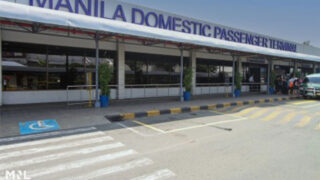THIS REFERS to the news item titled “Police watching Muslim enclaves for Abus and others,” (Inquirer, 5/10/11), which quoted Chief Supt. Agrimero Cruz Jr. as saying that the Muslim communities in Metro Manila and nearby provinces have become safe havens for Abu Sayyaf members and other terror suspects fleeing military operations in Mindanao.
The PNP spokesperson apparently does not differentiate law-abiding Muslim Filipinos from extremists; instead he lumps them together. This is disturbing. It is irresponsible to make a statement implying that Muslim communities are harboring lawless elements and terrorists. The alleged admission of Arabani Jakiran and Asdatul Sakirun that they were staying with their relatives in the metropolis before they were nabbed by police intelligence agents cannot be a valid ground for making such a sweeping conclusion. The PNP erroneously equates a particular custom with an act of coddling. Staying with relatives has been a practice among Muslim Filipinos since time immemorial.
Majority of Muslims in Metro Manila belong to the rank of professionals—lawyers, doctors, engineers, academicians, etc. There are also college students and workers in the government and the private sector, and some are engaged in business. Fearful of ending up as “collateral damage” of the civil strife in Southern Philippines, and to avoid the hardship the conflict has caused in their lives, these Muslims left Mindanao looking for a pasture to sustain the needs of their families. It is unfair to link any Muslim community with criminal suspects.
The PNP’s close monitoring of the Muslim communities in the metropolis for the possible presence of Abu Sayyaf members and other criminals should be cause for concern for every Filipino, Muslim or Christian or of whatever religion. In many instances, police have made arrests that turned out to be a dud, or a case of a mistaken identity or frame-up, and even without the necessary warrant of arrest.
We have a high regard for the PNP intelligence networks, but it would serve them well to make a distinction between “Muslims” and “Muslim communities,” on one hand, and a “suspect,” on the other. The mention of the name of a suspect, as done with non-Muslim suspects, should be enough—no need to sensationalize the issue just because the suspect is a Muslim.
Amid reports of harassment and acts of extortion done against innocent Filipinos, we offer unsolicited advice for our PNP to exercise prudence in arresting a Muslim suspect, as we do tell our Muslim brothers and sisters that it is time we supported the government in its drive to catch the bad elements in our society, who pose a serious danger to our children and family.
—MAUGA M. SARIP,
chief information officer,
National Commission on Muslim Filipinos,
ncmf_os@yahoo.com



